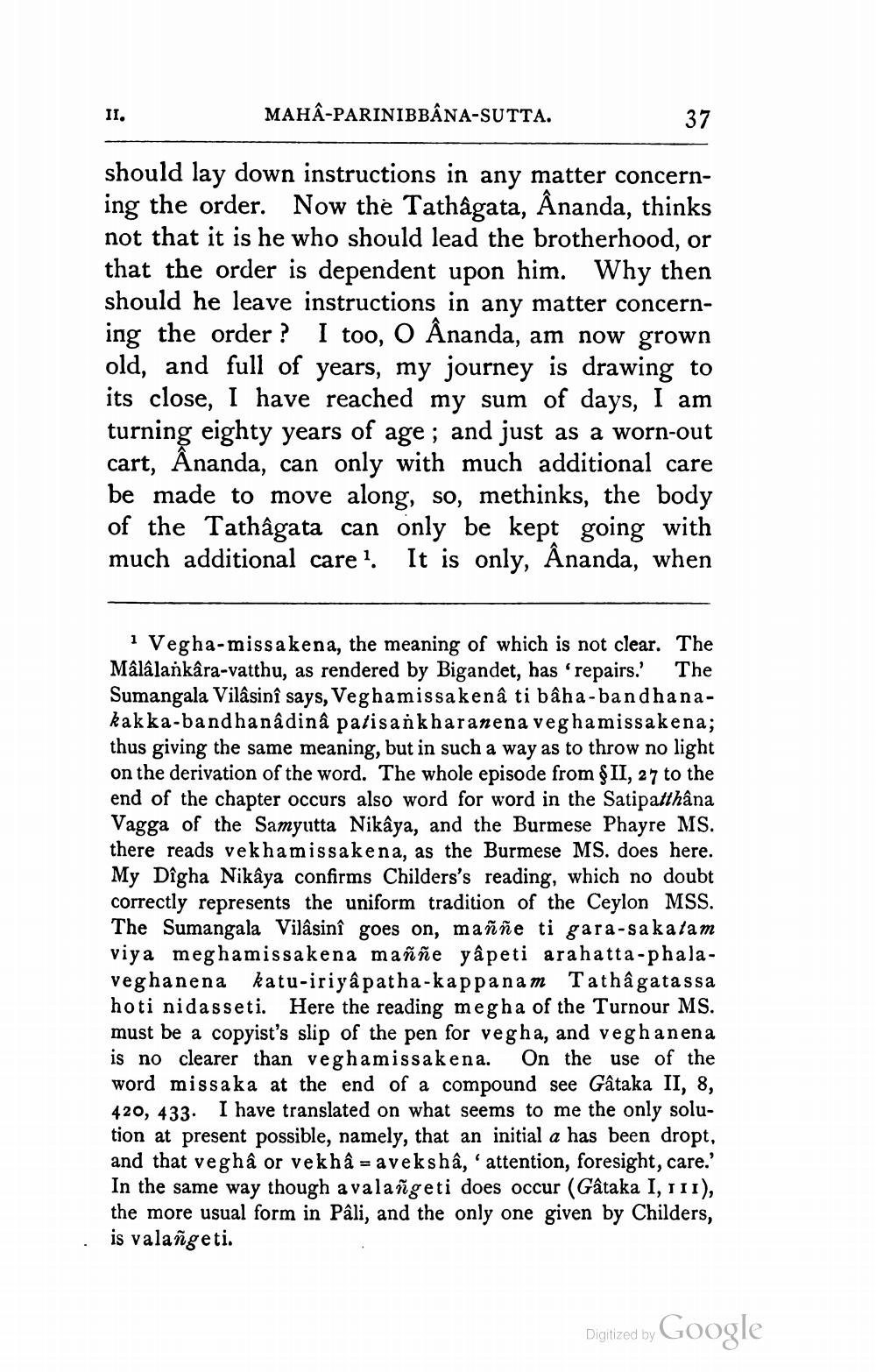________________
MAHÂ-PARINIBBÂNA-SUTTA.
37
should lay down instructions in any matter concerning the order. Now the Tathagata, Ananda, thinks not that it is he who should lead the brotherhood, or that the order is dependent upon him. Why then should he leave instructions in any matter concerning the order ? I too, O Ânanda, am now grown old, and full of years, my journey is drawing to its close, I have reached my sum of days, I am turning eighty years of age ; and just as a worn-out cart, Ânanda, can only with much additional care be made to move along, so, methinks, the body of the Tathagata can only be kept going with much additional care. It is only, Ânanda, when
i Vegha-missakena, the meaning of which is not clear. The Mâlâlankâra-vatthu, as rendered by Bigandet, has 'repairs. The Sumangala Vilâsinî says, Veghamissa kenâ ti bâha-bandhanakakka-bandhanadinâ patisankharanena veghamissakena; thus giving the same meaning, but in such a way as to throw no light on the derivation of the word. The whole episode from SII, 27 to the end of the chapter occurs also word for word in the Satipatthana Vagga of the Samyutta Nikâya, and the Burmese Phayre MS. there reads vek hamissa kena, as the Burmese MS. does here. My Digha Nikâya confirms Childers's reading, which no doubt correctly represents the uniform tradition of the Ceylon MSS. The Sumangala Vilâsinî goes on, maññe ti gara-sakatam viya meghamissakena maññe yâpeti arahatta-phalaveghanena katu-iriyâpatha-kappanam Tathagatassa hoti nidasseti. Here the reading megha of the Turnour MS. must be a copyist's slip of the pen for vegha, and veghanena is no clearer than veghamissakena. On the use of the word missaka at the end of a compound see Gâtaka II, 8, 420, 433. I have translated on what seems to me the only solution at present possible, namely, that an initial a has been dropt, and that veghâ or vekhâ= avekshâ, attention, foresight, care.' In the same way though a valañgeti does occur (Gâtaka I, III), the more usual form in Pâli, and the only one given by Childers, is valangeti.
Digitized by
Digitized by Google




